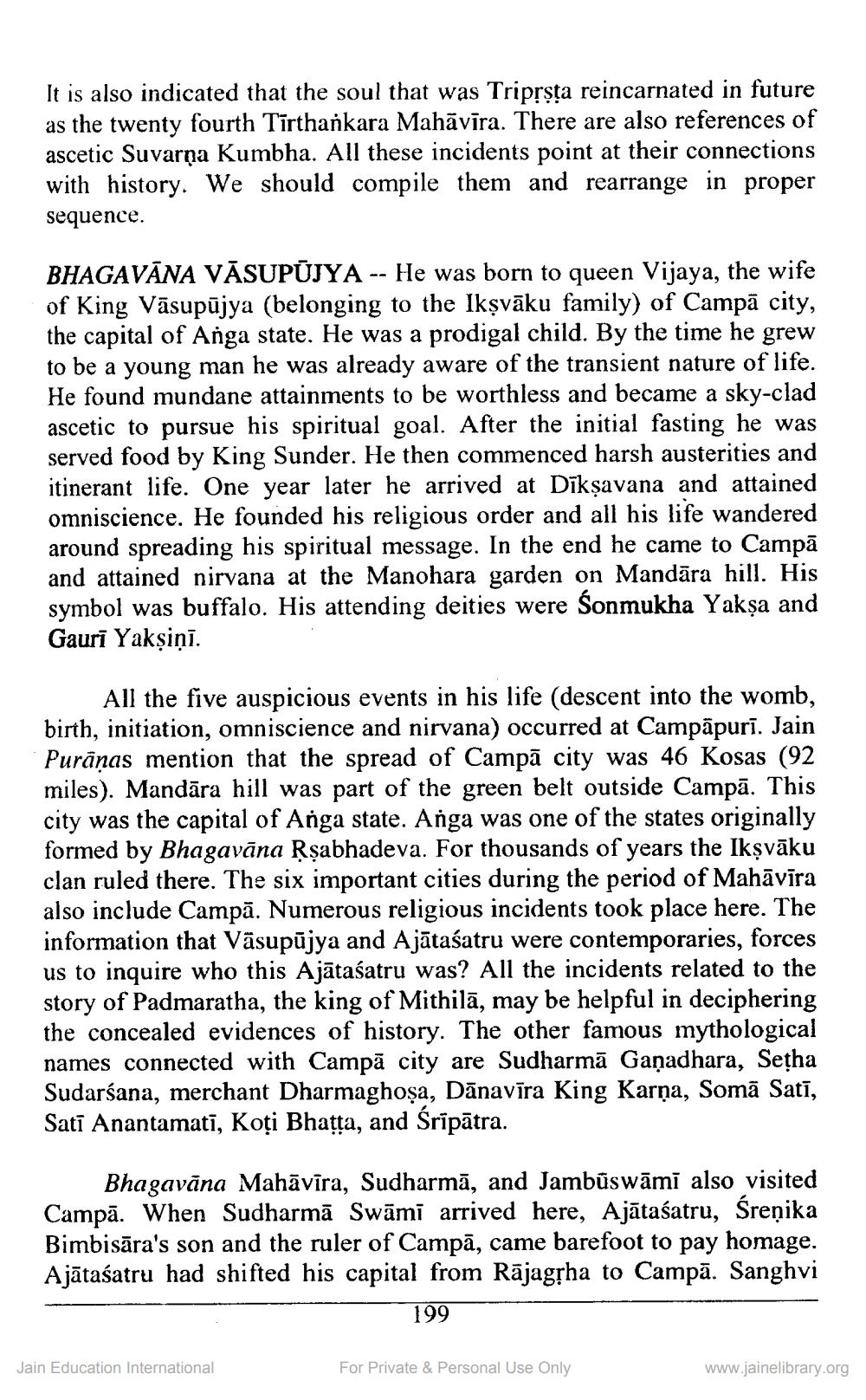________________
It is also indicated that the soul that was Triprsta reincarnated in future as the twenty fourth Tīrthankara Mahāvīra. There are also references of ascetic Suvarna Kumbha. All these incidents point at their connections with history. We should compile them and rearrange in proper sequence.
BHAGAVĀNA VĀSUPUJYA -- He was born to queen Vijaya, the wife of King Vāsupūjya (belonging to the Ikşvāku family) of Campā city, the capital of Anga state. He was a prodigal child. By the time he grew to be a young man he was already aware of the transient nature of life. He found mundane attainments to be worthless and became a sky-clad ascetic to pursue his spiritual goal. After the initial fasting he was served food by King Sunder. He then commenced harsh austerities and itinerant life. One year later he arrived at Dīkşavana and attained omniscience. He founded his religious order and all his life wandered around spreading his spiritual message. In the end he came to Campā and attained nirvana at the Manohara garden on Mandāra hill. His symbol was buffalo. His attending deities were Sonmukha Yakṣa and Gauri Yakṣiṇī.
All the five auspicious events in his life (descent into the womb, birth, initiation, omniscience and nirvana) occurred at Campāpurī. Jain Purāņas mention that the spread of Campā city was 46 Kosas (92 miles). Mandāra hill was part of the green belt outside Campā. This city was the capital of Anga state. Anga was one of the states originally formed by Bhagavāna Rsabhadeva. For thousands of years the Ikşvāku clan ruled there. The six important cities during the period of Mahāvīra also include Campā. Numerous religious incidents took place here. The information that Väsupūjya and Ajātasatru were contemporaries, forces us to inquire who this Ajātaśatru was? All the incidents related to the story of Padmaratha, the king of Mithilā, may be helpful in deciphering the concealed evidences of history. The other famous mythological names connected with Campā city are Sudharmā Ganadhara, Setha Sudarśana, merchant Dharmaghoșa, Dānavīra King Karņa, Somā Satī, Satī Anantamatī, Koți Bhatta, and Śrīpātra.
Bhagavāna Mahāvīra, Sudharmā, and Jambūswāmī also visited Campā. When Sudharmā Swāmi arrived here, Ajātaśatru, Śreņika Bimbisāra's son and the ruler of Campā, came barefoot to pay homage. Ajātaśatru had shifted his capital from Rājagpha to Campā. Sanghvi
199
Jain Education International
For Private & Personal Use Only
www.jainelibrary.org




